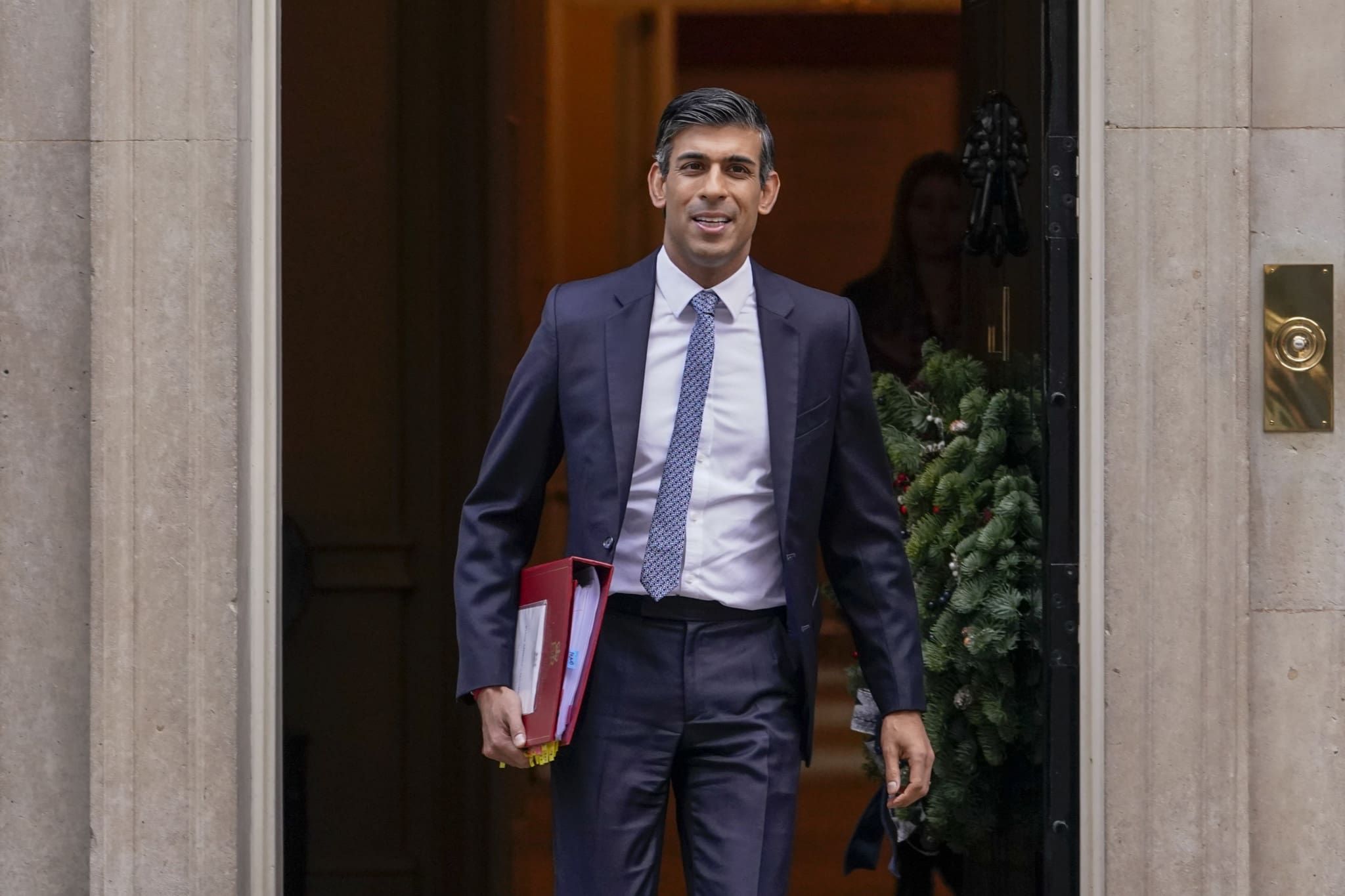Conservative party heavyweight Sajid Javid became on Friday the thirteenth Tory MP to announce they will not be contesting the next general election, as many Conservative lawmakers are being accused of jumping before they are pushed in the face of current polling projections.
Javid, who held two of the great offices of state — Home Secretary from 2018-2019, and Chancellor from 2019-2020 — revealed he had informed the chair of his constituency party in Bromsgrove of his intention not to stand for what would be his fifth election, and called being the local MP and serving in government “the privilege of (his) life.”
“I always sought to make decisions in the national interest and in line with my values, and I can only hope my best was sufficient,” he added.
Javid is the latest in a growing list of Conservative lawmakers choosing to call it a day at the end of this parliament, following announcements from Dehenna Davison (Bishop Auckland), William Wragg (Hazel Grove), Chris Skidmore (Kingswood), Sir Gary Streeter (South West Devon), Chloe Smith (Norwich North), Douglas Ross (Moray), Sir Charles Walker (Broxbourne), Nigel Adams (Selby and Ainsty), Crispin Blunt (Reigate), Sir Mike Penning (Hemel Hempstead), Adam Afriyie (Windsor), and Andrew Percy (Brigg and Goole)
Conservative MPs are understood to have been given a deadline of Dec. 5 to inform Conservative Campaign Headquarters (CCHQ) whether or not they intend to contest their seats at the next election, which is in the government’s control to determine when, and in light of its currently less than favorable polling results, unlikely to be much before the latest date allowed of January 2025.
So let’s take a look at that polling data. The Conservative parliamentary party may have hoped that doing away with Liz Truss and coronating Rishi Sunak may have eased the sizable decline in popularity the party has suffered in the eyes of the electorate during this parliamentary term.
That, however, has not been the case. The latest YouGov polling published on Thursday shows the opposition Labour party taking almost half of the vote share at 47 percent, while the governing Conservatives languish at just 22 percent, even down three percentage points from a week ago.
And what has changed in the past week? Well, the record-high net immigration figures of 504,000 might have something to do with the Conservatives falling even further down the electoral ladder, on top of the census data published this week showing a dramatic decline in Christianity across England and Wales, as well as showing that Birmingham and Leicester are now “minority majority” cities.
This would explain why the anti-mass migration Reform UK party, formerly headed by Brexit stalwart Nigel Farage, reached its highest polling figures since its inception with 9 percent, up 4 points over the week prior.
It is almost inconceivable that a party that enjoyed its largest electoral landslide in decades in 2019 under Boris Johnson’s leadership could now be this unpopular with the electorate. It’s almost as if abandoning your conservative principles to hike taxes and open up your country’s borders against the wishes of the electorate isn’t an election-winning strategy.
And indeed, 22 percent is exactly what Sunak’s Conservative party achieved in Thursday’s City of Chester by-election, a record low result for the Tories which saw Labour hold the parliamentary seat with an increased majority.
Could this be a sign of things to come for the Conservatives, and does it explain why so many incumbent lawmakers are seemingly jumping before they are pushed?
“It’s just beginning,” Farage tweeted about Reform UK’s favorable polling results on Thursday as evidence begins to seep through showing Tory loyalists abandoning the party for new pastures.
Among the electorate’s main concerns regarding the governance of the country, one topic finds itself near the top of the order time and time again: immigration.
With a People Polling survey now revealing that more than half of Britain’s 17.4 million Brexit voters in 2016 agree that a new party must be formed to campaign for lower immigration, and a third of all voters also holding this view, it is clear that the next general election could see a seismic shift against the longevity of Britain’s two-party system.
It’s no surprise that current members of the Conservative party responsible for the electorate’s dissatisfaction don’t want to be around for the backlash.






